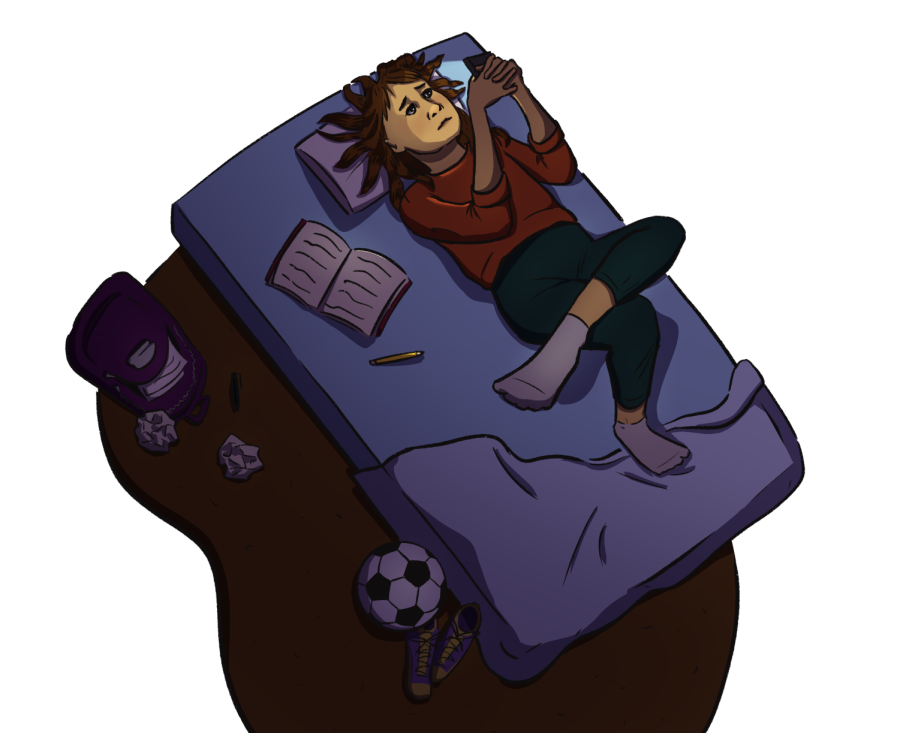Yawning from Dusk to Dawn: Fixing sleep habits
WANT MORE SLEEP? DREAM ON: Stop scrolling and start snoozing.
March 14, 2023
“Do you get 8-10 hours of sleep?”
Most Northwood students have been asked this question many times throughout their lives. And for those who answered “no,” you are not alone.
While a handful of adolescents do attain the recommended 8-10 hours of sleep, the majority are not so lucky. The Child Mind Institute found that about 70% of high schoolers do not regularly get a healthy amount of sleep. Whether it is because of academics, personal habits or social media, our generation is in the heat of a sleep deprivation epidemic.
One such cause of sleep deprivation may be “revenge bedtime procrastination,” a phenomenon where people delay their sleep in order to assert some kind of control over their time. After a long day of school, homework and extracurriculars, students often wish for some time for themselves. In those moments, a few more minutes of free time may feel worth the lack of sleep. However, they might become so used to being sleep deprived that they don’t even notice the toll it has on their bodies.
Even though students might feel fine, the situation may not be fine at all. According to the Centers for Disease Control and Prevention, children and adolescents who do not get enough sleep are more likely to have attention and behavior problems, contributing to poor academic performance. Research from the Washington Post stated that every lost hour of the average amount of sleep was associated with a 0.07 drop in a student’s GPA. Sleep deprivation is detrimental in the long run, increasing the likelihood for various health problems such as obesity and Type 2 diabetes.
On the flip side, sleeping has immense health benefits. Aside from reducing the health risks, having an adequate amount of sleep is vital for improving memory and cognitive abilities. Research from Cornell University states that sleep benefits a teen’s brain development and physical growth.
With that being said, however, it is reasonable to acknowledge that many teens understand the benefits of sleep already. When teens hear “You need sleep,” the question now is not “why” but “how.” How can we, the students of Northwood, try to maintain a sane sleep schedule?
There are a variety of recommended ways to help with your sleeping habits. These can include avoiding caffeine in the afternoon, having a cool, dark bedroom environment and not using electronics an hour before bed. Communicating your sleep habits with friends or a trusted adult is another option to keep yourself accountable. If you want to shift your sleep schedule for the better, the Sleep Foundation recommends making gradual, hour-by-hour adjustments, as changing your sleep schedule drastically will throw off your circadian rhythm.
Trying to get 8-10 hours of sleep in the 21st century is not easy, and you are not alone in this struggle: Millions of people our age are grappling with this very issue. When building healthy sleep habits, it is important to know that it will be a slow process that will take immense patience, self-control and self-awareness. Everybody’s life looks different; one method may do wonders for one person, while the same method may not work at all for someone else.
Despite these differences, however, every student’s common priority should be to take care of him or herself so that we can expand our potential. At the end of the day, it is important to find which method works best for you to ensure that you can get the rest that you deserve.

























































